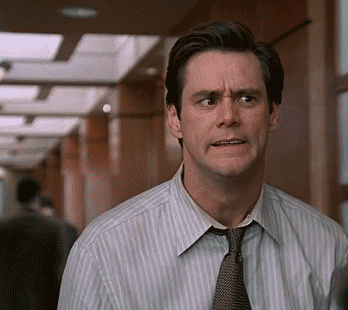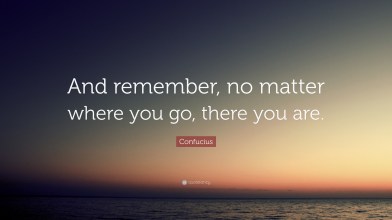
In the last year plus I’ve found myself single again for the first time in almost twenty years.
When I last was in the dating world I was in my early 20’s; and although I was legally an adult (and thought of myself as mature), looking back I was nothing more than a kid. I didn’t really know very much about life, relationships, or even myself for that matter.
People often imagine what they would do differently if they could go back in time with the knowledge they have gained since. How would they approach life differently with the benefit of that knowledge?
Well, I kind of have that opportunity now.
I can’t go back and do things differently. However I *do* have an opportunity in front of me to take the knowledge I have learned and try to apply it. To try to have the best future I can possibly have.
Even still, todays’ post is about that idea of going back in time. If I *could* write a letter to the younger me, what would it look like?
Although I know I can’t go back, I do have two children who will probably be starting relationships of their own in the next few years. Yeah, I know that they will have to go through their own experiences and learn in their own way. That’s a necessary (and often painful) part of personal growth.
But if I could share knowledge and experience, what would I tell them?
What would I tell myself?
Hey there, it’s me.
So you’re starting to notice women, or girls I guess (given your age). Yeah yeah, I know. You really don’t want to talk about this kind of stuff with me. I get that. But still, there are some things I want to tell you that may make life a bit easier for you, if you’re willing to listen.
You’re probably not even thinking about the word “relationship”. You’re probably more focused on the fact that you’re feeling an attraction towards someone. Maybe it’s her smile, her laugh, the sparkle in her eyes, her body.
Maybe it’s just the way you feel when you’re around her.
You want to spend time with her, and learn about her. And you hope that she’s thinking and feeling some of the same thing you are.
If she is? Well, hanging out becomes dating, and you find yourself building some form of a relationship. It will go through different stages and different levels of seriousness, but it’s still a relationship.
It’s human nature for us to seek relationships with other people. Family, friends, and of course romantic relationships. These relationships help give us a sense of connection and belonging.
It’s important to realize however that the most important relationship you will ever have is the one you have with yourself.
I really can’t overstate how important this is.
You need to know who you are, and what you want out of life. I get that you’re a kid, and you probably have no clue what I’m talking about. And really, it’s unfair of me to expect you to know who you are at this age. Honestly you’ll probably spend the rest of your life trying to figure that out. It doesn’t matter how old we are, we are always changing and always growing.
I guess the important part is, always accept yourself for who you are.
Right now.
Today.
Don’t worry about what you “are not”. Or about the things other people can do that you can’t.
You’re you, and the only person you should ever be competing with is yourself. Just try and be the best version of yourself that you can be.
Believe in yourself, and know that you can do anything you set your heart to. And on the days that you’re struggling to believe in yourself (cause those days WILL happen), know that I believe in you.
This relationship you have with yourself is SO important, because we teach others how to treat us. We show them our worth by how we value ourselves. And how can we ever expect someone else to treat us well, never mind love us, if we don’t love ourselves first?
It’s a process, I get that. And it can take years to truly be comfortable with who you are. In the meantime, when thinking about relationships with other people here are a few pointers…
It’s really easy to want to impress someone, and I’m sure you’ll do that to some degree. But the best thing you can do is to be yourself. Be authentic. Let the other person see you for who you are, flaws and all. Cause let’s face it, we all have them.
So many relationships fail because someone is trying to be what they think the other person wants. Trying to be someone they aren’t.
That really doesn’t help you.
It’s better that someone see’s you for who you are instead of seeing you for who you are pretending to be. What good does it do you to get someone to fall for a you that doesn’t really exist? Eventually you’ll start to resent doing that, or you’ll have to be you. And if they don’t like that when they see you? Well, I hate to say it but will be your own fault. So you may as well just be honest from the beginning.
And guess what, you need to be able to accept them for who they are too. Don’t look at them as someone who would be great if they would just change a few things. You can’t change people, and you shouldn’t try. If you can’t accept them for who they are, then they aren’t the right person for you.
In addition to being authentic, be vulnerable. Be willing to let people in, and be willing to show them emotion. Let them see and feel the things you care about, the things you are passionate about. That can be really hard for us, because as guys we’re often taught to hide our emotions and taught that it’s weakness to show them. That’s a load of crap. Women, men, it doesn’t matter. We are all emotional beings, and we need to be able to accept our emotions. I’m not talking about being an emotional basket case, cause that just means you can’t self-regulate. But you need to be able to let people in.
You might get hurt. In fact, I’m pretty sure you will.
That’s alright though, it’s part of it. Over time, the people closest to us will hurt us. It’s up to us to determine how we handle that hurt.
One of the things we are rarely taught is how to deal with conflict. Often conflict is seen as this terrible thing, and if you have conflict it becomes a sign that something is wrong.
That thinking is so incredibly damaging, and wrong.
People are different, with different experiences and beliefs. And conflict is just a natural result of these differences. Instead of seeing it as a bad thing, think of it as a way to get a deeper understanding (and hopefully acceptance) of the other person.
Conflict in and of itself isn’t a bad thing. It’s how we deal with conflict (or not deal with it in some cases) that can potentially be a bad thing.
Do we assume that anything different from our beliefs is wrong, or inferior to our beliefs? Are we willing to communicate the things that bother us, or do we keep it in and let it fester? Do we learn and move forward, or do we hold onto the past and refuse to let it go?
If we can’t learn to let things go, we’re in for a lifetime of unhappiness and resentment. The past has already happened, and it can’t be changed. All we can do is apply the lessons the past has taught us to building a better future.
That’s not to say we should just accept and put up with anything – another concept that is really important to learn is boundaries.
Personal boundaries are really important to determine. Basically, what truly matters to you? What is acceptable and what it not acceptable to you. Learning this is a process that can take a lifetime, as we often don’t even know what our boundaries are until they have been violated.
When they are violated, defending our own personal boundaries is about calling people out and telling them “hey, you did/said this and this is how it made me feel.” As I said earlier, we teach people how they can treat us. So defining our boundaries and enforcing them is about making the people around us understand what is acceptable and what is not. If our boundaries are constantly violated and we do nothing about it, we are teaching people that how they are treating us is actually alright.
To defend our boundaries we may have to walk away and reduce our exposure to that person, or even remove them from our life completely. It’s not easy, but sometimes it’s the only way.
Lets say you can do all that, and find yourself in a relationship with someone where things are going great…
When you get to that point, I want you to be conscious of something called hedonic adaptation. I know, it has a crazy name. But really, it’s probably one of the most important concepts you’ll ever come to understand.
I also think it’s one of the biggest killers of relationships.
So what the heck is it?
Think about a time you’ve been excited to get something, and you finally do. Even if it’s awesome at first, over time you stop appreciating it for how awesome it is – because you have it now. It’s yours. So those awesome qualities/features/whatever just become its regular features. And over time, because you get used to having those features you stop noticing them and instead you start noticing the things that are missing.
That’s hedonic adaptation.
It’s part of our psychology, where we are basically hard wired to start taking things for granted once they become our norm. And it applies to everything. New job, car, apartment, cool new gadgets…
And yes, relationships.
It doesn’t matter how amazing the person you are with is. Over the long term you WILL start to take her for granted. You will stop noticing all the little things that make her special to you. Because once you’re around her enough, it’s just her. It’s who she is. Nothing can be “new” forever, and we tend to stop appreciating what we already have.
As I said, I think this is probably the biggest killer of relationships out there. This probably doesn’t make any sense to you because you’re thinking “no way, this girl I’m interested in is amazing”. I’m sure she is. So my suggestion to you is, keep that in your heart and in your head.
Be conscious of it.
Think about it.
And on those days when things aren’t going great and you’re having issues, focus on what is it you like about her. Focus on why you wanted to be with her in the first place.
The only way to fight against this natural tendency to take things for granted is to practice active appreciation. Focus on the good, not the bad. I’m not saying ignore the bad, as I’m sure there will be some. Work on that, and have your boundaries. But don’t let it cause you to lose sight of the good.
And remember, she’ll be doing this (taking you for granted) too.
For some people, once they stop seeing the good they start looking for something new. If that happens and they need to be chased, let them go. Because they’re looking for excitement, and you’ll never be enough.
So I guess that’s my advice to you. Those are my lessons:
Accept yourself. Be authentic. Be willing to be vulnerable. Accept conflict as natural and learn to work through things. Understand and enforce your own boundaries. And last but not least, learn to appreciate what you have, each and every day.
Beyond that? Smile, laugh, and love.
Nothing in life is guaranteed, but I think doing those things will give you the best shot at something great.
And really, that’s all we can ask for.




 Last night I was driving home, just like any other night; when everything suddenly changed.
Last night I was driving home, just like any other night; when everything suddenly changed.












